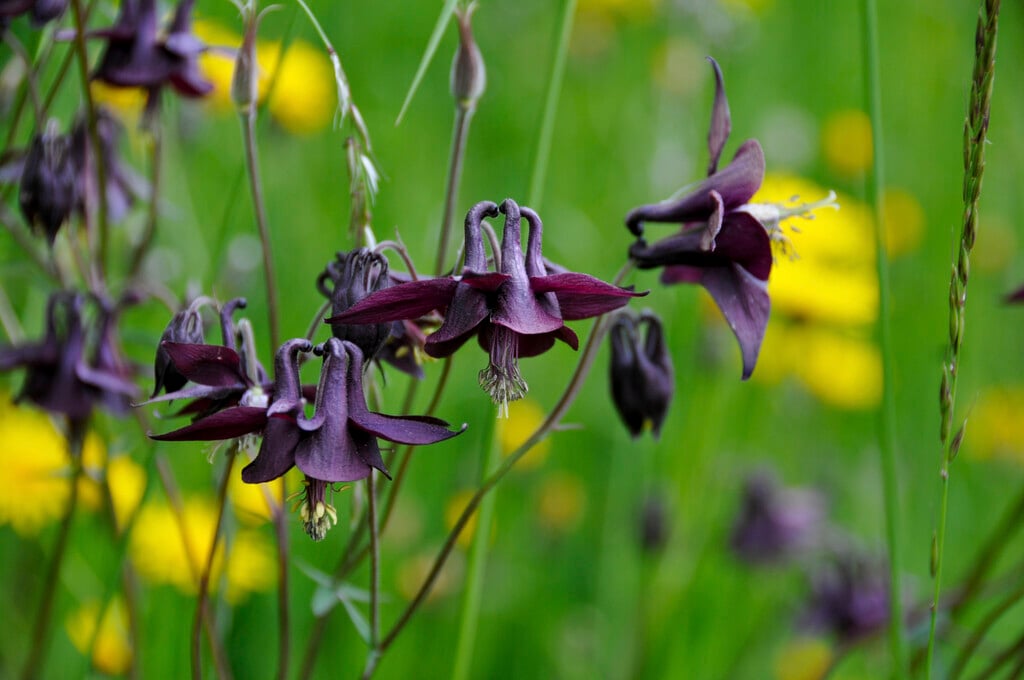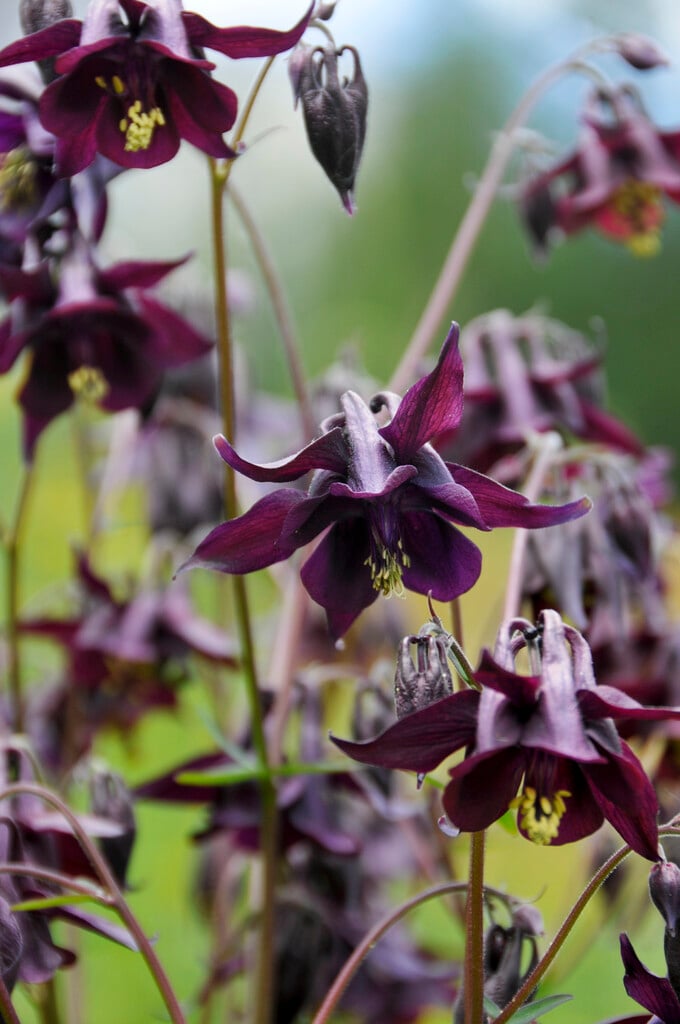Aquilegia atrata
dark columbine
A long-flowering true alpine species of upright, clump-forming habit, found at high altitudes, with mid-green, divided leaves around 60cm in height, the dark purple to black flowers with yellow stamens, produced on upright stems from late spring to late summer
Size
Ultimate height
0.5–1 metresTime to ultimate height
2–5 yearsUltimate spread
0.5–1 metresGrowing conditions
Moisture
Moist but well–drained, Well–drainedpH
Acid, Alkaline, NeutralColour & scent
| Stem | Flower | Foliage | Fruit | |
| Spring | Purple Black | Green | ||
|---|---|---|---|---|
| Summer | Purple Black | Green | ||
| Autumn | Green | |||
| Winter |
Position
- Full sun
- Partial shade
Aspect
East–facing or North–facing or South–facing or West–facing
Exposure
Exposed or Sheltered Hardiness
H7Botanical details
- Family
- Ranunculaceae
- Native to GB / Ireland
- No
- Foliage
- Deciduous
- Habit
- Clump forming, Columnar upright
- Genus
Aquilegia are clump-forming herbaceous perennials with long-stalked, ternately divided basal leaves and erect, leafy stems bearing bell-shaped flowers with spreading, coloured sepals and petals with spurs, on branched stems
- Name status
Correct
How to grow
Cultivation
Grow in fertile, moist but well-drained soil, in full sun or partial shade. See aquilegia cultivation for further advice
Propagation
Propagate by seed or by division. Propagates freely by seed in situ
Suggested planting locations and garden types
- Cottage and informal garden
- Gravel garden
- Rock garden
- Wildlife gardens
- Flower borders and beds
Pruning
No pruning required. May be cut back after flowering and kept well watered to encourage new leaf growth
Pests
May be susceptible to aphids, aquilegia sawfly, aquilegia sawfly and leaf miners
Diseases
May be susceptible to powdery mildews, aquilegia downy mildew and fungal leaf spot
Love gardening
Sign up to receive regular gardening tips, inspiration, offers and more
View our Privacy Policy
Get involved
The Royal Horticultural Society is the UK’s leading gardening charity. We aim to enrich everyone’s life through plants, and make the UK a greener and more beautiful place.

